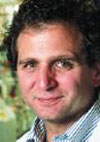Advertisement
Grab your lab coat. Let's get started
Welcome!
Welcome!
Create an account below to get 6 C&EN articles per month, receive newsletters and more - all free.
It seems this is your first time logging in online. Please enter the following information to continue.
As an ACS member you automatically get access to this site. All we need is few more details to create your reading experience.
Not you? Sign in with a different account.
Not you? Sign in with a different account.
ERROR 1
ERROR 1
ERROR 2
ERROR 2
ERROR 2
ERROR 2
ERROR 2
Password and Confirm password must match.
If you have an ACS member number, please enter it here so we can link this account to your membership. (optional)
ERROR 2
ACS values your privacy. By submitting your information, you are gaining access to C&EN and subscribing to our weekly newsletter. We use the information you provide to make your reading experience better, and we will never sell your data to third party members.
Policy
Probe of NIEHS Head Broadens
Several internal inquiries and congressional probes have begun on ethics issues
by Bette Hileman
September 3, 2007
| A version of this story appeared in
Volume 85, Issue 36
INVESTIGATIONS into the embattled tenure of David A. Schwartz at the National Institute of Environmental Health Sciences have dramatically multiplied and broadened to include other institute officials as well as NIH Director Elias A. Zerhouni. Schwartz has stepped down as NIEHS director while his management and ethics are being scrutinized (C&EN, Aug. 27, page 10).
Documents obtained by C&EN indicate that the investigations of Schwartz and NIEHS include those of groups at the Department of Health & Human Services (HHS) and at least four congressional committees. Congress is focusing on several aspects of Schwartz's administration: possible violations of ethics rules, conflict of interest guidelines, and spending limits. Aside from acknowledging an NIH management review of Schwartz, NIH will not confirm other investigations at the institute or by HHS.
Several members of Congress, including Rep. John D. Dingell (D-Mich.) and Sen. Charles E. Grassley (R-Iowa), want to know what kind of an ethics agreement Schwartz signed with Zerhouni when he was hired in May 2005. And they want to know why Schwartz continued testifying as an expert witness for two law firms in personal injury cases involving asbestos, reportedly earning $150,000 between May 2005 and September 2006. Specifically, they are inquiring whether Zerhouni or NIH ethics officials in some way condoned the activity. Schwartz's testimony in the asbestos cases was unethical, the representatives say, because he was trading on NIEHS's reputation.
Congressional investigators are also examining Schwartz's attempt to privatize NIEHS's open-access journal Environmental Health Perspectives and cut its budget by 85%. "EHP is the single most reputable source of new science investigating links between our environment and our health and is one of the top peer-reviewed medical journals in the world," says Rep. Dennis J. Kucinich (D-Ohio). "Because EHP is publicly funded, important public health functions are performed that the private sector would be unlikely to support."
Congressional panels are also asking why, in July, employees at NIEHS were asked to submit a form to management in the event they were contacted by congressional investigators. Grassley, ranking member of the Senate Finance Committee, wrote to Zerhouni: "Handing this form out to rank and file NIEHS employees during the course of a congressional investigation could cause these employees to feel that management is attempting to flush out whistleblowers or any other individual assisting me with my inquiry."
Grassley is also concerned that Schwartz may have ignored conflicts of interest regarding grants. In an Aug. 28 letter to Zerhouni, Grassley wrote: "My staff has received credible allegations that Schwartz may have ignored ethical considerations when NIEHS awards extramural grants. Schwartz has collaborations with several outside academics and institutions, which require him to recuse himself from certain situations in the grant-awarding process."
In response to a July 24 request from Dingell, chair of the House Energy & Commerce Committee, Zerhouni has submitted information on ethics matters related to Schwartz. Committee staff expect to take at least two more weeks to review the material.






Join the conversation
Contact the reporter
Submit a Letter to the Editor for publication
Engage with us on Twitter